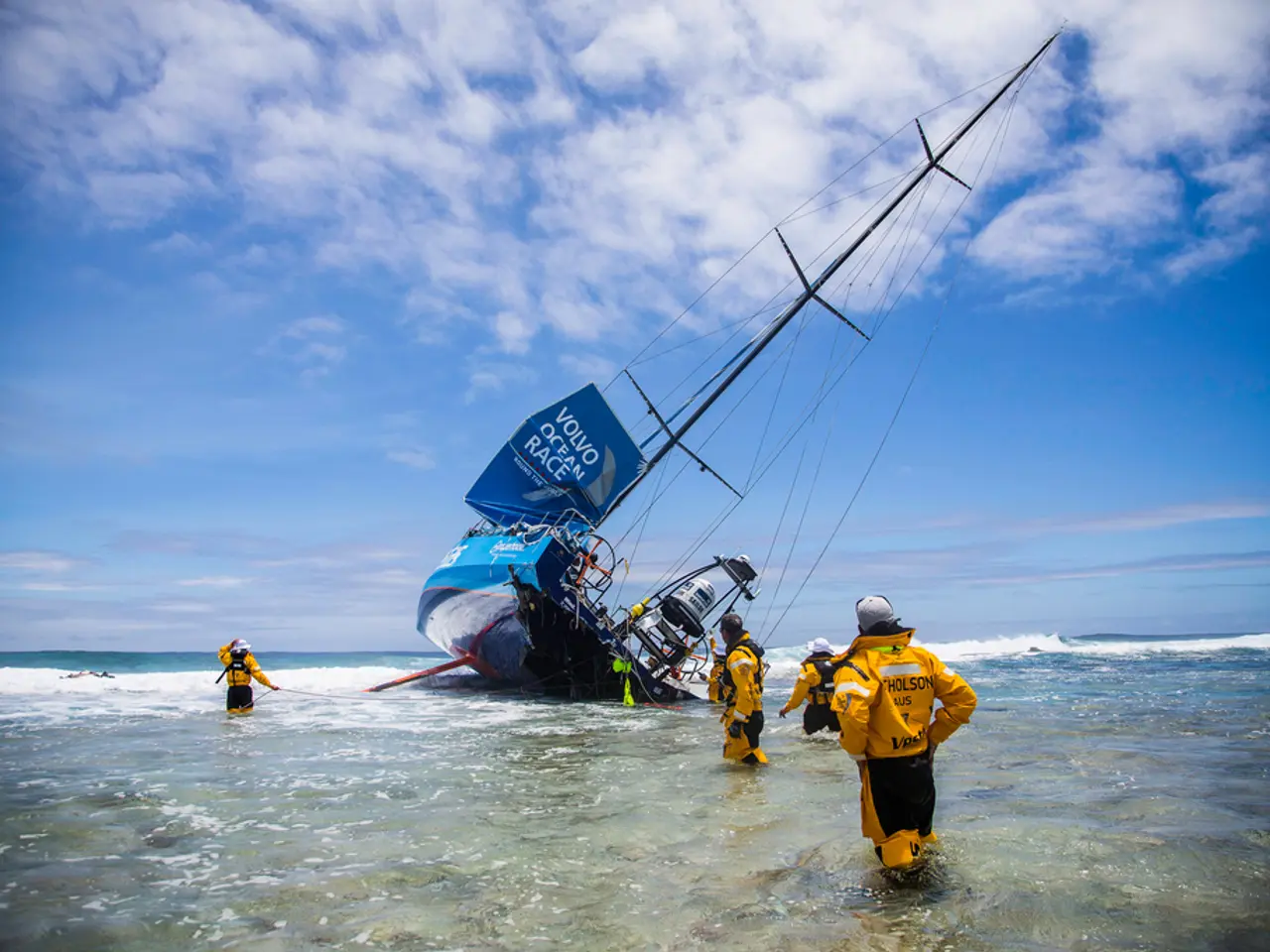Failures in the Titan sub catastrophe detailed in a fresh report... CEO Stockton Rush found to be 'negligent' and responsible
Tragedy at the Titan: A Preventable Disaster Reveals Deep-Sea Industry's Flaws
A harrowing incident in June 2023 shook the deep-sea exploration community when the Titan submersible, owned and operated by OceanGate Expeditions, imploded while on its way to the Titanic site. The catastrophic implosion resulted in the instant death of all five people onboard, including CEO Stockton Rush, British billionaire Hamish Harding, Pakistani businessman Shahzada Dawood and his teenage son Suleman, and French Titanic expert Paul-Henri Nargeolet.
The U.S. Coast Guard report, released recently, has shed light on the causes of this tragic event. The report flags the absence of domestic and international oversight for manned submersibles like the Titan, and how OceanGate was able to operate outside of the established deep-sea protocols by strategically creating and exploiting regulatory confusion.
The investigation found that the root cause of the implosion was OceanGate's failure to follow basic engineering protocols, including proper design, certification, testing, and maintenance. The sub's carbon-fibre design, already a source of concern within the industry, was described as "flawed" by the US Coast Guard report. Prior signs of structural issues were ignored, and employees who raised alarms about safety concerns were fired or threatened by the company.
The report also points to CEO Stockton Rush as a key figure in the disaster. Rush's unchecked authority and lack of accountability as CEO and pilot created a perfect storm of risk. He is singled out for misrepresenting the Titan's safety, describing it as "indestructible." Rush also bypassed critical safety checks and procedures, which contributed to the deaths of four individuals.
The internal culture at OceanGate was toxic, with safety complaints being suppressed under the threat of termination. A former employee stated that the company's financial stress led to decisions that compromised safety. Financial strain in 2023 increased risks to the Titan's hull and operation, with employees being asked to temporarily forgo salaries with the promise of back pay.
The US Coast Guard report concludes that the tragedy was "preventable" and driven by "critically flawed" practices, design shortcuts, and an appalling safety culture inside OceanGate. The report highlights the need for stronger oversight and clear options for operators who are exploring new concepts outside of the existing regulatory framework in the private deep-sea exploration industry.
The National Transportation Safety Board investigation is ongoing and will provide additional conclusions. If CEO Rush had lived, a criminal investigation may have been recommended. The report underscores the importance of adhering to engineering protocols and maintaining a culture of safety in the deep-sea exploration industry.
- The tragedy at the Titanic site serves as a stark reminder of the importance of adhering to medical protocols, akin to maintaining health and wellness, in all industries, especially chronic-disease management and medical-conditions sectors.
- The deep-sea exploration industry, much like the finance sector, relies heavily on data and cloud computing technology to ensure safety and make informed decisions.
- The absence of proper oversight in the deep-sea exploration industry is akin to the regulation confusion faced in the sports-betting industry, where loopholes can lead to preventable accidents and disputes.
- In light of the Titan's tragedy, it is crucial for policy and legislation to prioritize safety and transparency, similar to policies aimed at reducing war and conflicts.
- The transportation industry, including the automotive sector, learns from accidents to improve safety measures, as the deep-sea exploration industry should do following the Titan's catastrophe.
- The report's findings of regulatory confusion in the deep-sea exploration industry are reminiscent of the chaos faced in general-news reporting, where misinformation or selective reporting can lead to misinterpretations and misinformed decisions.
- CEO Stockton Rush, like a corrupt politician, misrepresented the Titan's safety and compromised its integrity, endangering the lives of those on board.
- Just as an unchecked military leader can lead to armed conflicts, an unchecked CEO in the deep-sea exploration industry can lead to disasters.
- The financial stress faced by OceanGate parallels the struggles faced by struggling start-ups in the technology or data-and-cloud-computing industries, where cutting corners can lead to disastrous consequences.
- The tragedies arising from car accidents and crime highlight the importance of a strong culture of accountability, a culture that the Titan's disaster lacked.




